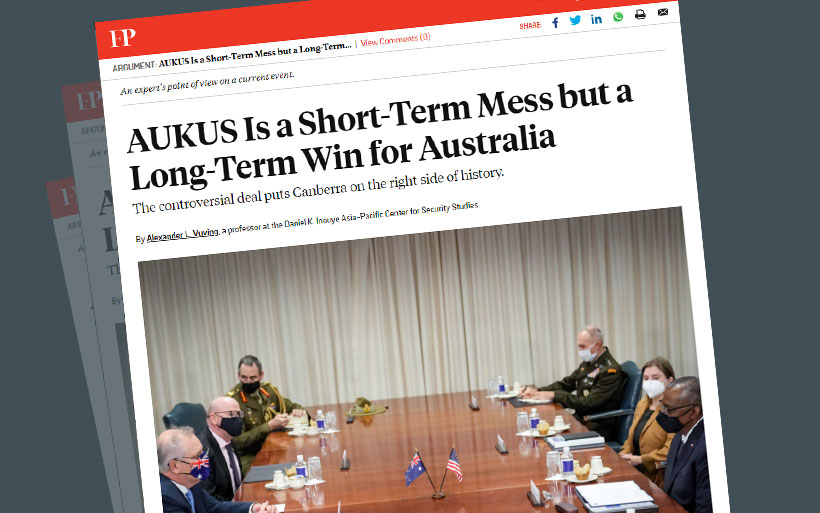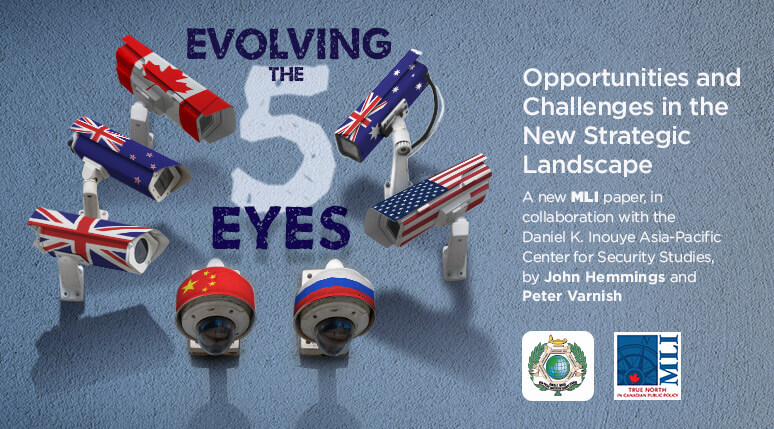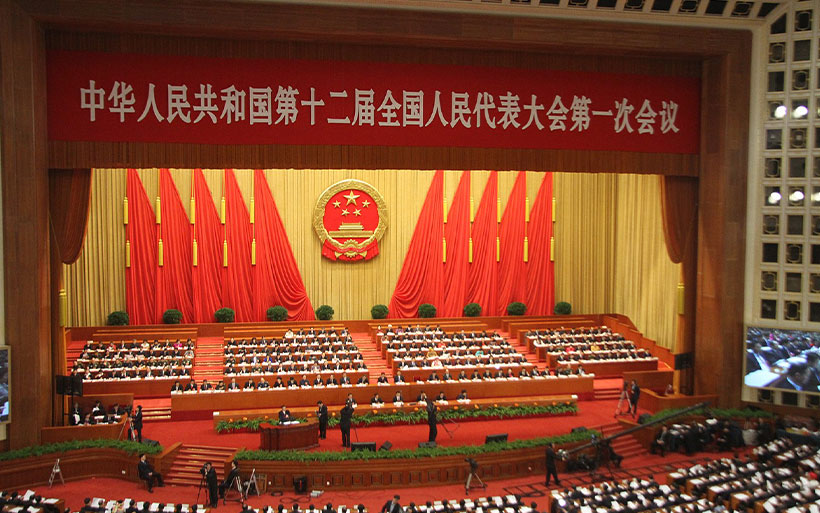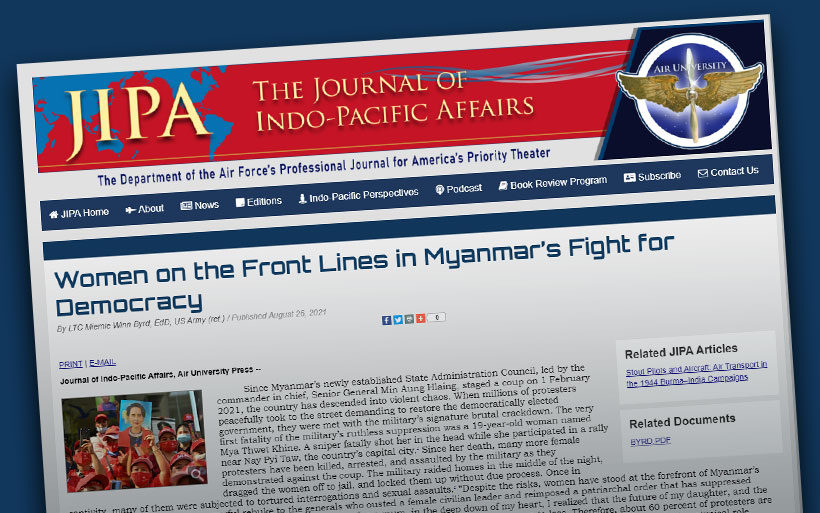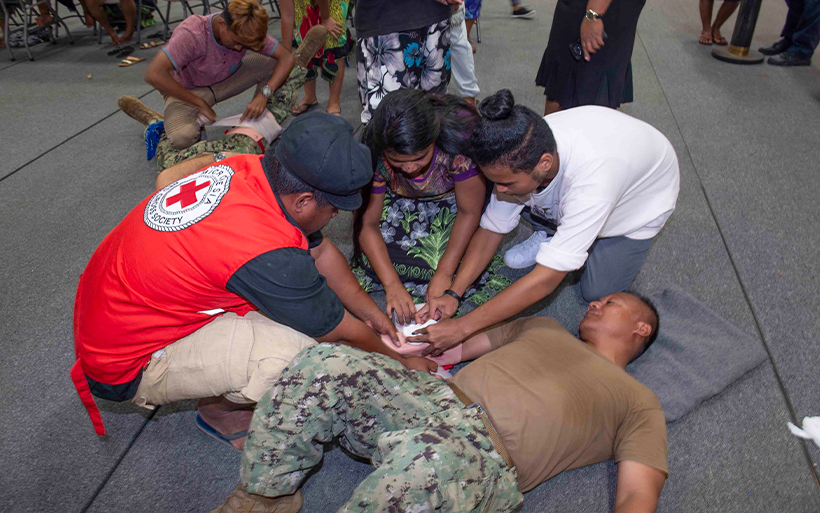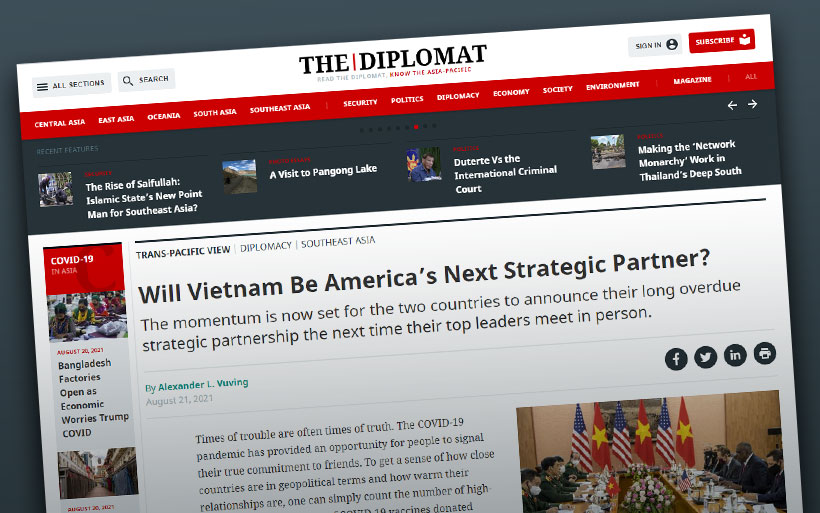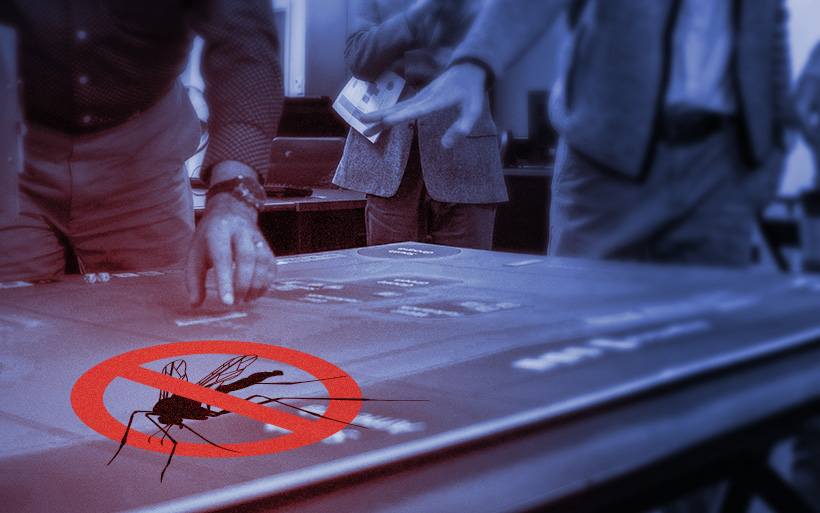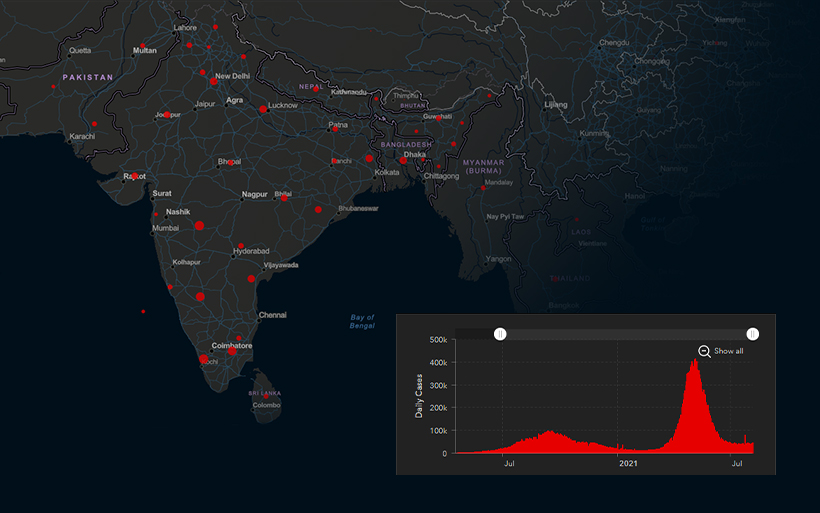AUKUS Is a Short-Term Mess but a Long-Term Win for Australia
Dr. Alexander Vuving has a new article in Foreign Policy magazine entitled “AUKUS Is a Short-Term Mess but a Long-Term Win for Australia.” The article discusses the impact of the Australian-UK-US pact on Australia. According to Vuving, although the immediate impact may have been controversial, he states that this puts Australia on the right side of history. “The great-power rivalry between the United States and China is the more fundamental struggle between a rules-based and a hierarchy-based international order,” said Vuving. He concluded that “Australia is fortunate not to have a dilemma between the best choice based on the values [...]


